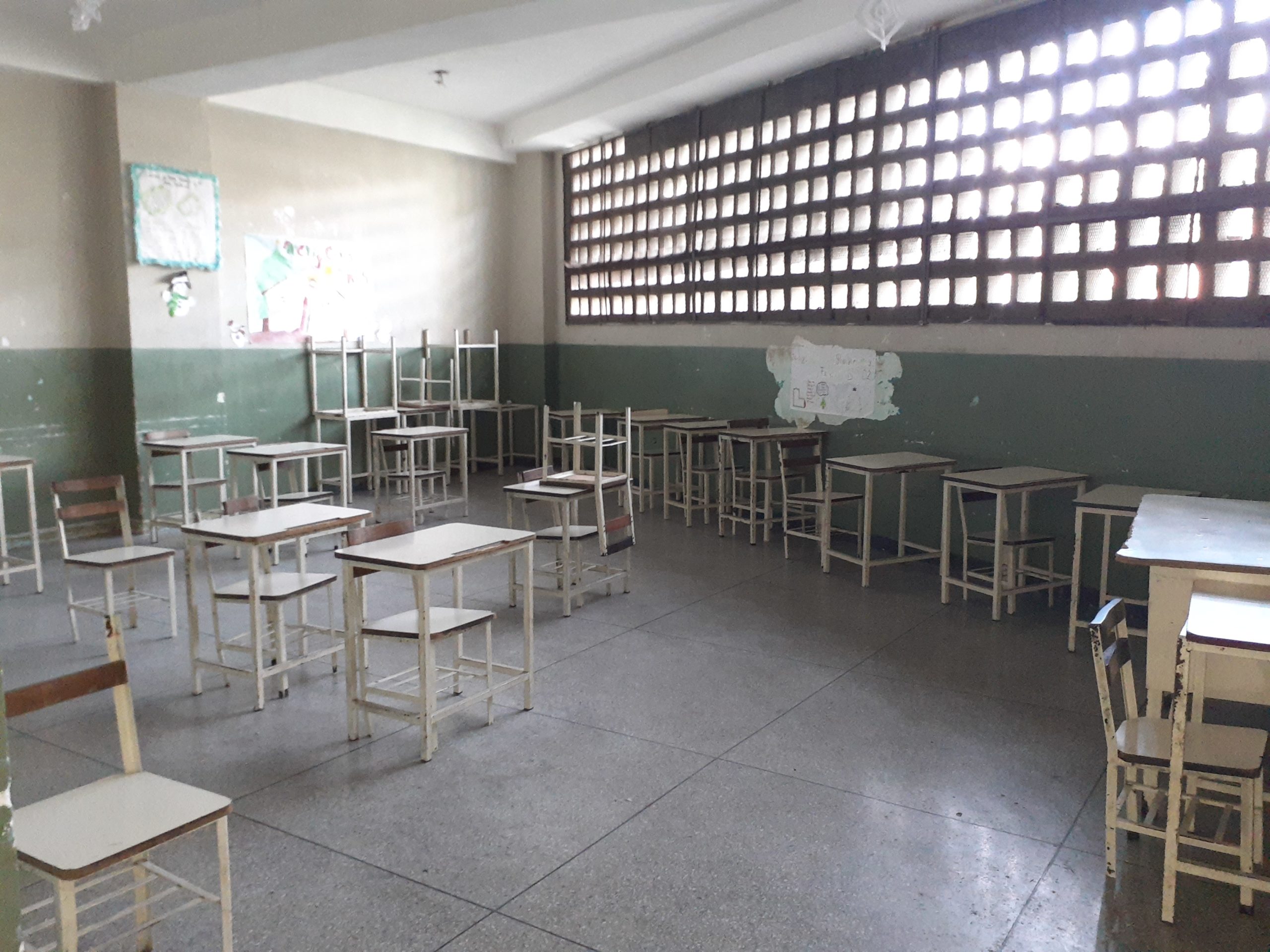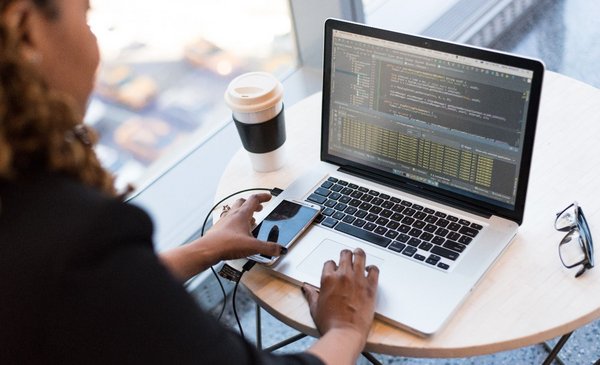Although the Minister of Education, Yelitze Santaella, assures that there is an improvement in the educational establishments thanks to the bricomiles, the reality is different, since absenteeism set the tone on the first day of classes due to failures and terrible conditions in the infrastructure in the schools of the country. The average of educational institutions with structural failures is 80% in the west of the country, while in the capital region it is 75%.
empty desks. In other cases, the absence of them. That has been the scenario of public educational centers in various regions of the country during the start of classes for the 2022-2023 school period, scheduled for Monday, October 3. The trend seems to be the same: schools without teachers, educational institutions with evident deterioration and failures in basic services such as water or electricity.
*Also read: Nearly eight million students return to classes amid complaints from teachers
President Nicolás Maduro assured that the students would return to classes “with repaired schools and high schools” and that this would be the year of “the great educational transformation of Venezuela”, with the help of the military community brigades (bricomiles). The Minister of Education, Yelitze Santaella, He asserted that there was an improvement in educational institutions thanks to their action, but the reality is different.
(2/2) The #BRICOMILES continue to be active receiving material for the repair and maintenance of educational institutions.@NicolasMaduro @MPPEDUCATION @jhoagaby pic.twitter.com/0dQVf9lFo9
– Yelitze Santaella (@_LaAvanzadora) July 30, 2022
After two years of the pandemic, many schools are in even worse conditions. This is how different spokespersons from the educational sector denounce it in the regions of the country and the Capital District.
Classes in Caracas
Although certain failures such as electrical service are usually seen more in the interior of the country, Caracas is not left out.
During an interview broadcast on Radio Fe y Alegría NewsProfessor Edgar Machado, a member of the Caracas Region Venezuelan Teachers’ Union (Sinvema DC), said that there are many educational institutions that do not have the physical conditions to receive students.
Machado stated that 75% of educational centers in the Capital District are in poor condition. He also criticized the fact that the two years of the pandemic were not taken advantage of to fix some institutions.
Kimberly lives in the El Winche neighborhood, located in Petare. She has seven children. Four of them study at the Cecilio Acosta Educational Unit. She commented that the representatives of that institution are asked for 50 bolivars in cash each month “for expenses.” From time to time they are also asked to collaborate with cleaning products. “The worst part is that sometimes they don’t even have classes because the teachers don’t come,” she says.
According to Kimberly, her children learn thanks to the guided tasks that are taught in the sector. She affirms that there “they teach them more than in the same school.”
Also read: Pandemic deepened school “unlearning” and students advance without the skills
Edgar Machado assured that several schools in Petare “remain in the dark”, such as the José de Jesús Arocha UE, which on Monday, October 3, had no light due to problems with the electrical installation. This problem is also replicated in the Caricuao parish.
“There are institutions in Caricuao where they are asking each representative for 10 dollars to collect the money and have the institution accommodated, when it is the responsibility of the Ministry of Education,” denounced the trade unionist.
While in the state of Miranda, the inhabitants of the town of El Clavo, Acevedo municipality, blocked the road on October 4 and directly protested to Governor Héctor Rodríguez (PSUV) for the poor condition of one of their schools. “Here we are not attacking anyone” and “The school is falling down, governor, support us”were part of the claims.
“We went to school together and we are all committed to contributing to guarantee his recovery. Problems are solved with the people and on the site,” the governor said on the matter.
This morning I went to the El Clavo community, where they had blocked the way to denounce the poor condition of a school. We went to school together and we were all committed to contributing to guarantee his recovery. Problems are solved with the people and on the site. pic.twitter.com/cwrR67BMFt
– Héctor Rodríguez C. (@HectoRodriguez) October 4, 2022
In the west there were no students
The president of the Unitary Union of Teachers of Zulia state, Gualberto Mas and Rubyhighlighted that seven out of 10 students did not attend the classrooms last October 3. In a monitoring carried out in five municipalities (Maracaibo, Cabimas, Valmore Rodríguez, San Francisco and Santa Cruz de Mara) it was found that school presence was barely 30.57%.
It was also verified that 80% of the schools were in “fair” or “bad” conditions for returning to school. “We only have 6% of schools left that are in good conditionin quotes,” he explained.
According to the study, the most common failures in schools are electrical service, bathrooms and provision of school supplies. The teacher reiterated that the comments most heard by the students in Zulia were “in my school there are no bathrooms, in my school there are no desks, in my school there is no electricity.”
In Lara state, the poor infrastructure of educational institutions is similar to Zulia. Luis Arroyo, president of the Association of Teachers of that entity, commented that his expectations for this new school year are not positive, since «more than 80% of the institutions in Lara are not equipped, neither in infrastructure nor with the necessary materials for students to learn.
Both representatives and teachers, Arroyo said, face the same economic difficulty and general problems, which directly affects the education of Venezuelan children and youth. However, he asserted that they will continue to make efforts to provide quality education for all.
The economic problems were the most pressing for Rosa Chirinos. She told the Momentum that «the shoes, nothing else, were 30 dollars. The flannel and the pants belong to the brother. The only thing I bought him was socks, boxer shorts and shoes.
While in the state of Falcón only 127 schools, out of a total of 1,349 according to data from the portal Chronicle.Oneopened during the start of school in the midst of structural repairs and provision of supplies.
In the schools of the Las Lapas community, in Tucacas, Silva de Falcón municipality, classes could not start due to flooding.
In the east they also missed classes
Maira Marín, president of the Venezuelan Union of Teachers (Sinvema) in Anzoátegui, assured that in that entity only less than 20% of students attended their first day of classes. In her opinion, the lack of students is due to the collapse of schools where the bricomiles have not yet arrived.
“Not to go too far, at the Manuel Reyes Bravo high school in Guanta, the parents and representatives were going to organize a protest with the purpose of demanding the provision of tools, since they have a deficit of more than 400 table-chairs, for example. . Meanwhile, there are other schools that are full of water because the rains have worsened their infrastructure.
Marín called on the authorities to visit these institutions, see the state they are in and do something to repair them.
In Cojedes, some students did attend their classrooms but had to see classes on the floor due to the lack of desks. The La Causa R party affirmed that this situation occurred at the Francisco Miguel Seijas high school, in the Tinaquillo municipality.
But César Hernández, director of the Educational Zone of that state, showed how the Los Pimpollitos Bolivarian Initial Education Center, in San Carlos, had been recovered by the bricomiles.
Outrageous!
This is how the new school year began at the Francisco Miguel Seijas high school in the municipality #Tinaquillo Edo Cojedes: students receiving classes sitting on the floor because the educational institution does not have desks. pic.twitter.com/ThXjQfkBA2– The Cause Я (@LaCausaRVe) October 5, 2022
Post Views:
76








